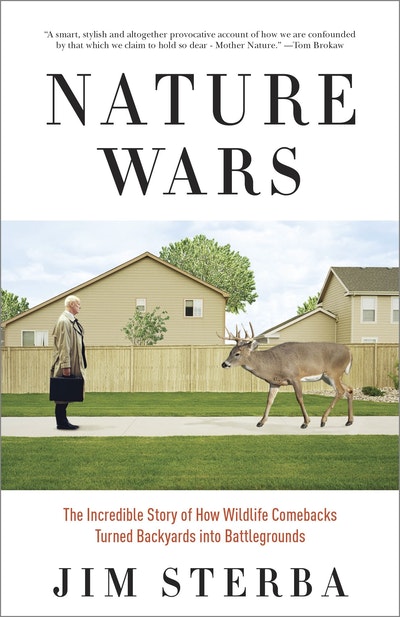[]
- Published: 15 November 2013
- ISBN: 9780307341976
- Imprint: Crown
- Format: Paperback
- Pages: 368
- RRP: $45.00
Nature Wars
The Incredible Story of How Wildlife Comebacks Turned Backyards into Battlegrounds
Formats & editions
Buy from…
- Published: 15 November 2013
- ISBN: 9780307341976
- Imprint: Crown
- Format: Paperback
- Pages: 368
- RRP: $45.00
Praise for Nature Wars:
"[A] sweeping and thoughtful work . . . [Sterba] paints a vivid and memorable portrait of these new eco systems, where only one, plentiful species is capable of bringing balance and harmony among living things: homo sapiens." --Los Angeles Times "Smart and provocative . . . A counterintuitive take on a social problem, and the tone is knowing and smart, not sarcastic or snide." --Chicago Tribune "While advancing his brief that mankind has to do more to intervene as managers in the natural process, Sterba also ably documents how we influence wildlife without really trying or realizing it." --Christian Science Monitor


